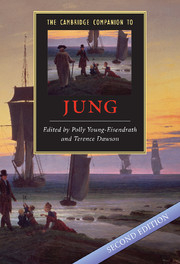Book contents
- Frontmatter
- New developments in the post-Jungian field
- Part I Jung’s Ideas and their Context
- Part II Analytical Psychology in Practice
- Part III Analytical Psychology in Society
- 11 Jung and Buddhism: refining the dialogue
- 12 A Jungian analysis of Homer’s Odysseus
- 13 Literary criticism and analytical psychology
- 14 Jung and politics
- 15 Jung and religion: the opposing self
- Index
14 - Jung and politics
from Part III - Analytical Psychology in Society
Published online by Cambridge University Press: 28 June 2008
- Frontmatter
- New developments in the post-Jungian field
- Part I Jung’s Ideas and their Context
- Part II Analytical Psychology in Practice
- Part III Analytical Psychology in Society
- 11 Jung and Buddhism: refining the dialogue
- 12 A Jungian analysis of Homer’s Odysseus
- 13 Literary criticism and analytical psychology
- 14 Jung and politics
- 15 Jung and religion: the opposing self
- Index
Summary
Jung sometimes described the relationship between the ego and the unconscious as a power struggle (CW 9.i, paras. 522-523; CW 7, paras. 342 and 381). In this struggle, when an unconscious complex takes over the ego, there is “possession” (see Sandner and Beebe, 1984, p. 310; CW 7, p. 224). When the ego takes over from the unconscious certain attributes that belong to the Self, there is “inflation” (CW 7, pp. 228-229). Jung compared the progressive transformation of this power struggle in the individuation process to a sequence of political regimes. He calls the initial unconscious unity of the psyche a “tyranny of the unconscious.” The situation in which the ego is predominant he compares to “a tyrannical one-party system.” And when the ego and the unconscious “negotiate” on the basis of “equal rights,” the relation resembles a “parliamentary democracy” (CW 18, p. 621). This apt political metaphor for the individuation process points to a larger issue, the contribution of Jungian psychology to the study of politics. This chapter explores three topics: (1) the relationship between “the political development and the psychological development of the person” (Samuels, 1993, p. 4); (2) the relationship between the psychological development of the person and democracy (Odajnyk, 1976, pp. 182-187); and (3) the prospects for Jungian psychopolitical analysis. The writings on the first two topics fall into two categories. The first revolves around Jung's own political thought, including several of Jung's writings that deal directly with politics: Essays on Contemporary Events, The Undiscovered Self.
- Type
- Chapter
- Information
- The Cambridge Companion to Jung , pp. 299 - 314Publisher: Cambridge University PressPrint publication year: 2008

